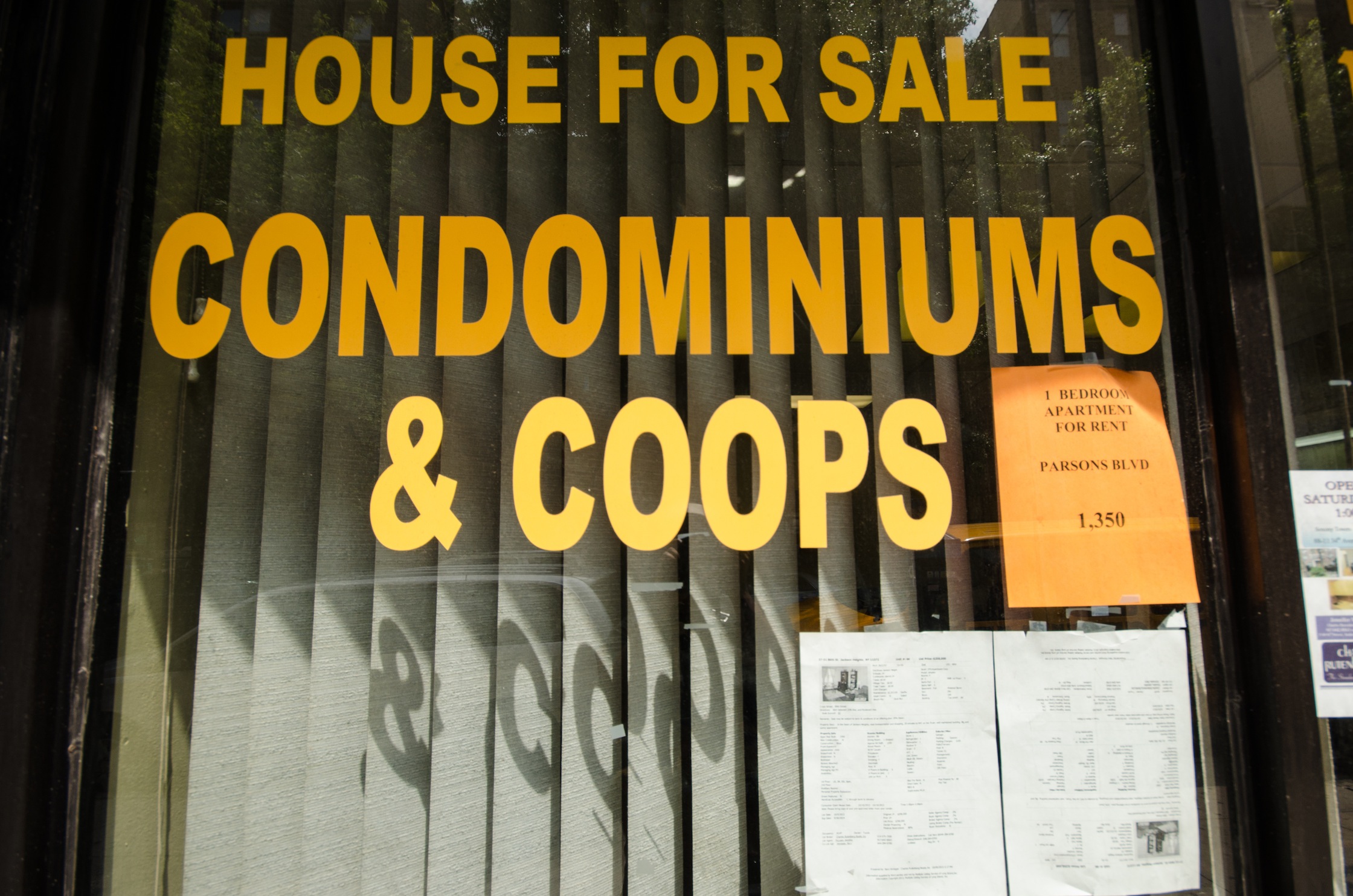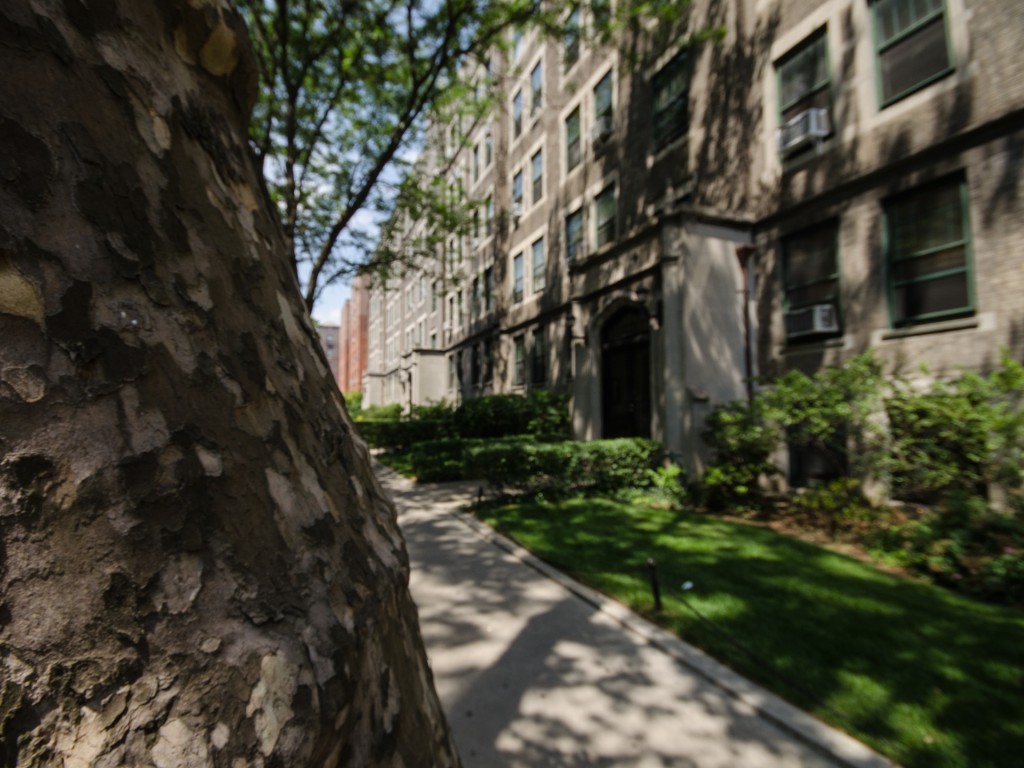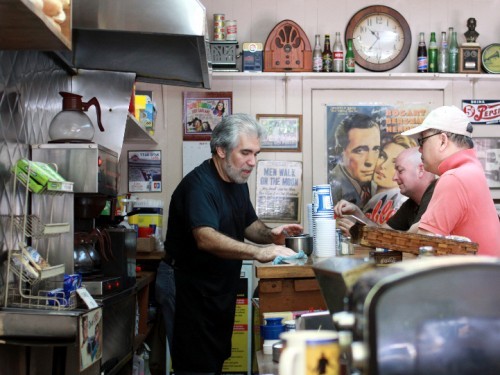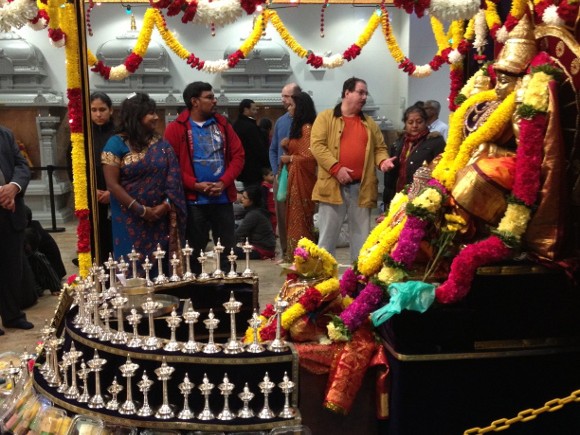A Queens couple tries to put down roots in their own community and discovers the unwritten discriminatory rules of real estate.

July 9, 2014
I shook my umbrella dry and looked for Camila* and Subhash* among the tables at La Abundancia, a Columbian bakery on Roosevelt Ave. in Jackson Heights. Inside, patrons quietly chewed pan dulce or leafed through tabloids, but the two of them sat shoulder-to-shoulder by a corner window staring at the drizzly commuter rush on 75th Street. As I approached, Camila lifted her paper cup coffee to her mouth, stopping short to mention something to Subhash with a coy smile. She was giving him a hard time, or letting a tiff peter out into playful one-upmanship. He half-grinned and said nothing, keeping his eyes intently on his drink.
I pulled up a chair and relinquished my dampened bag and headphones to the ground.
We had met a few weeks before at Lety’s on 37th Avenue—just Camila and I. Then, the aroma of pastries was sweeter. We sat in the middle of the café, near the counter, and talked about gentrification and the difficulties of finding a place to live in the city. How the New York Times seemed hell-bent on drafting an invasion plan for northwestern Queens. This time, however, we were three and secluded in the corner of a bakery. The raw rain-piss smell from the street had faintly infiltrated the wafting coffee bean, sugar, and butter.
We sat in the middle of the café, near the counter, and talked about gentrification and the difficulties of finding a place to live in the city.
“We’re still looking at places,” Subhash explained, “and the boards might want to interview us, so we’d have to tell our stories, you know?” As a baseline, he wanted no divulging of names, no clues to identify them.
They had been looking at apartments in Jackson Heights for over a year. It took some time to figure out how the game was played and who the players were: real estate agents and co-op boards, young professionals from outside the neighborhood, but very few, if any, prospective buyers like them—both brown, both first generation immigrants.
He laid out some rules of engagement for home-buying. There was a rule for examining fixtures, another for negotiating the sales price, a whole set for dealing with the boards. They learned these. Did their research. Got a broker. They were playing the game by the rules, and even thought they had a leg up on outsiders whose only knowledge of the neighborhood was culled from the Times’ “Real Estate” section. After all, Camila had grown up here.
Then an inside tip from their broker reset the game and changed all the rules.
“So this woman tells our broker, ‘why don’t you find me a normal, white, straight couple?’” he said.
“It felt like, all this time, I’ve done everything I’m supposed to, and suddenly, my money isn’t green,” Subhash said, trailing off. An ivy league degree, a baseball scholarship, a steady job, fulfilling the wishes of his Indian parents—it all just wasn’t enough. The experience had really wounded him, and made him leery of sharing any of it.
“So this woman tells our broker, ‘why don’t you find me a normal, white, straight couple?”
The comment came from the head of a co-op board—a categorical rejection on two of three grounds. Skin color and surnames were enough to rule out whiteness and disqualify them as “abnormal.” Though they were straight, the board president still felt compelled to throw in a request for the agent to check future buyers’ sexual orientation.
Housing discrimination is nothing new to Jackson Heights or its co-ops. Developers founded the neighborhood in the early 1900s as a planned community for wealthy Anglo-Americans looking to escape the increasing congestion—and new immigrants—of Manhattan. Part of this planning hinged on restrictive covenants that did not explicitly mention Blacks or Jewish and Catholic immigrants, but nonetheless were leveraged to exclude them from joining co-op developments. Even the father of Asian American civil rights icon Grace Lee Boggs, who grew up in Jackson Heights, had to purchase the land for the family’s house in the name of an Irish contractor.
A century later, “normal, white, and straight” are still unofficial criteria for joining some co-op communities here.
“He’s having a hard time with it honestly,” she said, placing her hand over his and looking right at him.
Unearthing racism was different for Camila. While he had grown up just outside the city in a primarily white, middle-class suburb, she was raised in the thick of multi-racial, new immigrant Jackson Heights. Conforming to white norms was his everyday burden, relieved only by the repose of Indian culture, food, and family at home. That same culture was right outside her doorstep. It overlapped with her South American heritage in bright-colored signage like bumper stickers down Roosevelt Avenue. Even the apartment where she grew up was less a sanctuary and more a communal space they shared with other immigrant families in their multi-unit building.
“It was kind of an open-door policy,” she fondly recalled. “People would just walk in and say hi and hang-out, you know? And after 6pm everyone was in their kitchen watching channel 41.”
The utopian dynamics of her childhood aside, she learned early and often that some long-term residents would never really be comfortable with the new faces, scents, and music.
“I mean we always knew that some of the co-ops had a reputation for being old, caucasian and racist, frankly,” she remarked. “I guess when our broker told us about the co-op president’s comment, I wasn’t personally offended by it because I wasn’t surprised.”
Still, she was incensed, and not just by the behavior of the co-op president. Weeks before, on a visit to another a building, their own broker made an unsavory comment about the attire of a Latina agent who happened to be showing the apartment to another family.
“It’s hard to trust anybody, really,” Camila complained.
Subhash shrugged and grimaced with some resignation. The problem seemed much larger than them. Ultimately, they employed an attorney to help them look into the matter.
“The legal process is taking some time,” she said.
The New York Human Rights Commission handles these types of housing discrimination complaints against co-ops and landlords, and the lack of transparency of co-op boards, in particular, has been an issue at the forefront of its work for some time. In fact, more than twenty years ago the Commission levied one of its highest penalties against a board in Jackson Heights. Lew Fidler, a city council member from Brooklyn and former real estate attorney, even introduced a bill in the legislative session last year—Intro 188—to squarely deal with the issue of rampant discrimination by co-op boards.
“No one is going to be able to tell me that invidious discrimination does not take place in this process,” Fidler testified in April of last year.
Curiously, the same broker who disclosed to the couple the inflammatory remarks of the board president reached out to them again not long ago with news from the same co-op board. The president apparently had a “change of heart,” and it seemed the board might be willing to reconsider their application.
“Wait, did you reapply?” I asked.
“We’re still looking at other places right now,” Camila told me, again looking directly at Subhash.
He looked up at me and said nothing.
*The names of the persons in this story have been changed to protect their identities.




